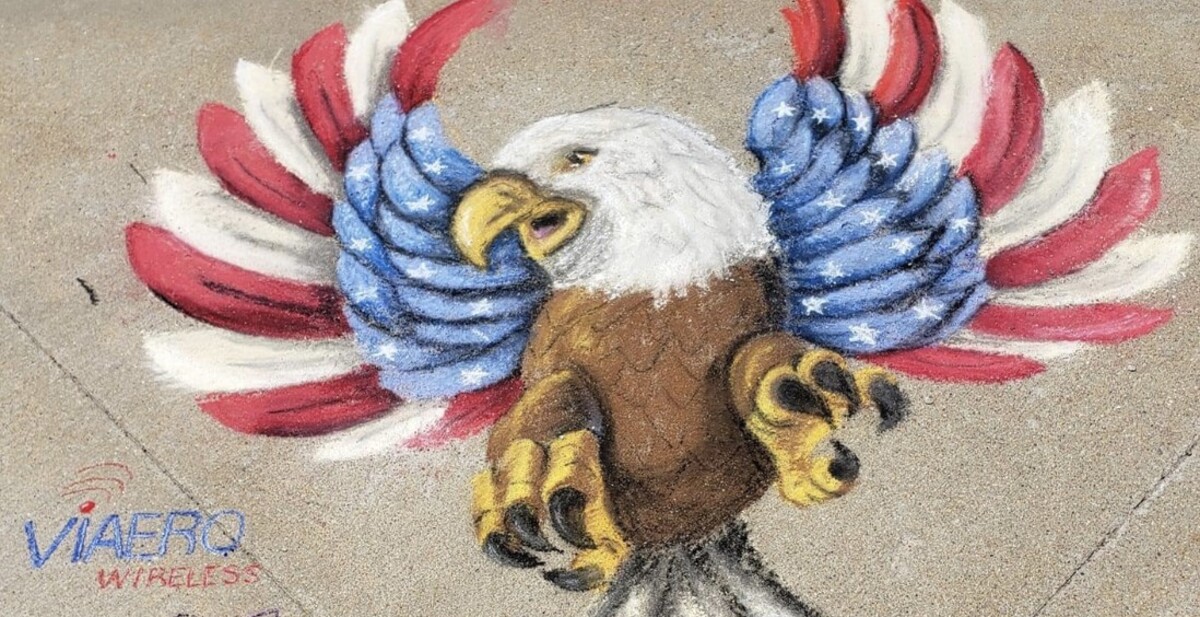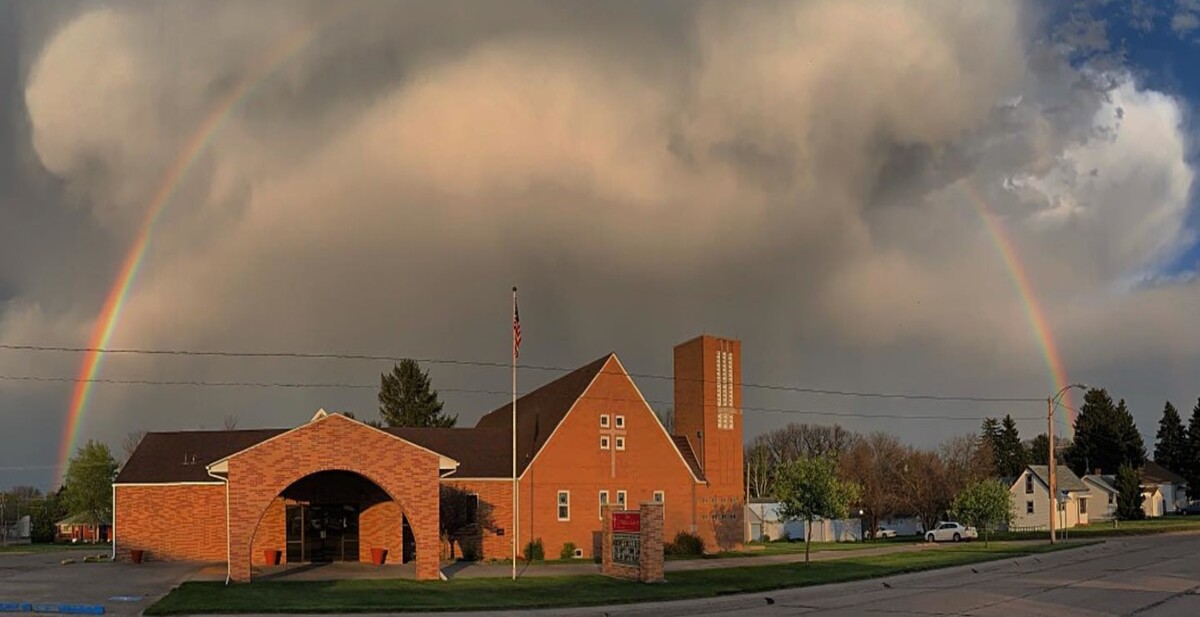Article 2 - Dogs and Cats
Article 2 – Dogs and Cats
SECTION 3-201: DEFINITIONS
SECTION 3-202: RABIES VACCINATION
SECTION 3-203: DOGS; LICENSING; FEE; RABIES CERTIFICATE
SECTION 3-204: DOGS; LICENSE TAGS
SECTION 3-205: DOGS; LOST TAG
SECTION 3-206: DOGS; WRONGFUL LICENSING
SECTION 3-207: DOGS; REMOVAL OF collar or harness, LICENSE TAGS
SECTION 3-208: limit on number
SECTION 3-209: DOGS; RUNNING AT LARGE
SECTION 3-210: DOGS; DAMAGE; LIABILITY OF OWNER
SECTION 3-211: DOGS; excrement
SECTION 3-212: DOGS; BARKING AND OFFENSIVE; COMPLAINT
SECTION 3-213: DOGS; FEMALE IN SEASON
SECTION 3-214: DOGS; FIGHTING
SECTION 3-215: RABIES SUSPECTED; IMPOUNDMENT
SECTION 3-216: DANGEROUS DOGS; DEFINITIONS
SECTION 3-217: DANGEROUS DOGS; CONFINED; WARNING SIGN
SECTION 3-218: DANGEROUS DOGS; RESTRAINED
SECTION 3-219: DANGEROUS DOGS; FAILURE TO COMPLY
SECTION 3-220: Dangerous dogs; violation; prior conviction
SECTION 3-221: DANGEROUS DOGS; PENALTY
SECTION 3-222: IMPOUNDMENT
SECTION 3-223: INTERFERENCE WITH ANIMAL CONTROL
SECTION 3-201: DEFINITIONS
For the purpose of this chapter, the following definitions shall apply unless the context clearly indicates or requires a different meaning.
“Animal” shall mean any live, vertebrate creature, domestic or wild.
“Animal control officer” shall mean any individual employed, appointed, or authorized by an animal control authority for the purpose of aiding in the enforcement of this chapter or any other law or ordinance relating to the licensing of animals, control of animals, or seizure and impoundment of animals; shall include any state or local law enforcement or other employee whose duties in whole or in part include assignments that involve the seizure and impoundment of any animal.
“Animal shelter” shall mean any facility operated by a humane society municipal agency or its authorized agents for the purpose of impounding or caring for animals held under the authority of this ordinance or state law.
“Commercial animal establishment” shall mean any pet shop, grooming shop, auction, riding school or stable, zoological park, circus, performing animal exhibition, or kennel.
“Dog” shall mean any canine animal, male or female, sexed or neutered.
“Grooming shop” shall mean a commercial establishment where animals are bathed, dipped, plucked, or otherwise groomed.
“Kennel” shall mean the ownership, possession, keeping, or harboring of two or more dogs over the age of six months or permitting two or more dogs over the age of six months to be or remain upon his or her premises.
“Licensing authority” shall mean the City of Grant.
“Owner” shall mean any person, partnership, or corporation owning, keeping, or harboring one or more animals. An animal shall be deemed to be harbored if it is fed or sheltered for three consecutive days or more.
“Pet” shall mean any licensed animal kept for pleasure rather than utility.
“Pet shop” shall mean any person, partnership, or corporation, whether operated separately or in connection with another business enterprise, except for a licensed kennel that buys, sells, or hoards any species of animal.
“Public nuisance” shall mean any animal which:
A. Molests passersby or passing vehicles;
B. Attacks other animals;
C. Trespasses on school grounds;
D. Is repeatedly at large;
E. Damages private or public property; or
F. Barks, whines, or howls in an excessive, continuous, or untimely fashion.
“Restraint” shall mean any animal secured by a leash or lead or within the real property limits of its owner.
“Stray animal” shall mean any unlicensed animal found roaming at large, frequenting, or remaining on private or public property without the consent of the owner or tenant of said property.
“Wild animal” shall mean any live monkey (non-human primate), raccoon, skunk, fox, poisonous or dangerous snake, poisonous or dangerous insect, leopard, panther, tiger, lion, lynx, or any other warm-blooded animal which can normally be found in the wild state.
“Zoological park” shall mean any facility, other than a pet shop or kennel, displaying or exhibiting one or more species of non-domesticated animals operated by a person, partnership, corporation, or government agency. (Neb. Rev. Stat. §§54-606, 71-4401)
SECTION 3-202: RABIES VACCINATION
Every dog or cat shall be vaccinated against rabies pursuant to state law. Upon each such inoculation, the veterinarian who performed the procedure shall sign and deliver to the owner of such animal a certificate showing such inoculation against rabies, the date thereof and the effective period of such immunization. Unvaccinated dogs or cats acquired or moved into the city must be vaccinated within 30 days after purchase unless under the age for initial vaccination. The provisions of this ordinance with respect to vaccination shall not apply to any dog or cat owned by a person temporarily residing within this city for fewer than 30 days, any dog or cat brought into this city for show purposes, or any dog brought into this city for hunting purposes for a period of fewer than 30 days; such dogs shall be kept under the strict supervision of the owner. (Neb. Rev. Stat. §71-4402)
SECTION 3-203: DOGS; LICENSING; FEE; RABIES CERTIFICATE
A. Any person who shall own, keep, or harbor a dog over the age of three months within the city shall within 30 days after acquisition of the dog acquire a license for each such dog annually by or before May 1 each year. The tax shall be delinquent from and after May 10, provided that the possessor of any dog brought into or harbored within the corporate limits subsequent to May 1 of any year shall be liable for the payment of the dog tax levied herein and such tax shall be delinquent if not paid within ten days thereafter. A license shall be issued by the city clerk upon the payment of a license fee for each male dog, each spayed female dog, and each unspayed female dog. Such fees shall be as set by resolution by the City Council and kept on file in the office of the city clerk. The license shall not be transferable and no refund will be allowed in case of death, sale, or other disposition of the licensed dog.
B. An additional annual statutory fee of $1.25 per license shall also be charged pursuant to Nebraska law. The city shall retain 3¢ from the said fee and remit the balance to the state treasurer for credit to the Commercial Dog and Cat Operator Inspection Program Cash Fund. The 3¢ collected shall be credited to the general fund along with the license fees.
C. The owner shall state at the time the application is made and upon a form provided for such purpose his or her name and address and the name, breed, color, and sex of each dog owned and kept by the owner. A certificate that the dog has had a rabies shot, effective for the ensuing year of the license, shall be presented when the license is applied for and no license or tag shall be issued until the certificate is shown.
D. Every service animal shall be licensed but no license tax shall be charged. Upon the retirement or discontinuance of the animal as a service animal, the owner of the animal shall be liable for the payment of a license tax as prescribed herein. (Neb. Rev. Stat. §§17-526, 54-603) (Ord. No.10-07-01, 7/13/10)
SECTION 3-204: DOGS; LICENSE TAGS
A. Upon the payment of the license fee, the city clerk shall issue to the dog owner a license certificate and a metallic tag for each dog so licensed. The tag shall be properly attached to the collar or harness of each dog so licensed and shall entitle the owner to keep or harbor the said dog until April 30 following such licensing.
B. Dogs must wear identification tags or collars at all times when off the premises of the owner. In the absence of a tag, a dog shall be regarded as a stray whenever off its owner's property.
C. In the event that a license tag is lost and upon satisfactory evidence that the original plate or tag was issued in accordance with the provisions herein, the city clerk shall issue a duplicate or new tag for the balance of the year for which the license tax has been paid and shall charge and collect a fee set by resolution of the City Council and kept on file in the city office for each duplicate or new tag so issued. All license fees and collections shall be immediately credited to the general fund. It shall be the duty of the city clerk to issue tags of a suitable design that are different in appearance each year.
SECTION 3-205: DOGS; LOST TAG
In the event that a licensing tag is lost and upon satisfactory evidence that the original tag was issued in accordance with the provisions herein, the city clerk shall issue a duplicate or new tag for the balance of the year for which the license tax has been paid and shall charge and collect a fee for each duplicate tag so issued. Such fee shall be as set by resolution of the City Council and kept on file in the office of the city clerk. (Neb. Rev. Stat. §§17-526, 54-603)
SECTION 3-206: DOGS; WRONGFUL LICENSING
It shall be unlawful for the owner, keeper, or harborer of any dog to permit or allow such dog to wear any license, metallic tag, or other municipal identification than that issued by the city clerk nor shall the owner, keeper, or harborer wrongfully and knowingly license an unspayed female with a license prescribed for a spayed female. (Neb. Rev. Stat. §17-526)
SECTION 3-207: DOGS; REMOVAL OF collar or harness, LICENSE TAGS
It shall be unlawful for any person to remove or cause to be removed the collar, harness, or license tag from any licensed dog without the consent of the owner, keeper, or possessor thereof. (Neb. Rev. Stat. §17-526)
SECTION 3-208: limit on number
It shall be unlawful to own, keep, or harbor more than three cats and three dogs per residence within the city. No animals shall be grandfathered after the date of passage of this municipal code.
SECTION 3-209: DOGS; RUNNING AT LARGE
All dogs shall be kept under restraint. It shall be unlawful for the owner of any dog to allow it to run at large at any time within the corporate limits of the city. Upon failure of the owner to comply with this section, a law enforcement officer shall issue a citation for a violation of this section. (Neb. Rev. Stat. §17-526)
SECTION 3-210: DOGS; DAMAGE; LIABILITY OF OWNER
It shall be unlawful for any person to allow a dog owned, kept, or harbored by him or her or under his or her charge or control to injure or destroy any real or personal property of any description belonging to another person. The owner or possessor of any such dog, in addition to the usual judgment upon conviction, may be made to be liable to the persons so injured in an amount equal to the value of the damage so sustained. (Neb. Rev. Stat. §§18-1720, 54-601, 54-602)
SECTION 3-211: DOGS; excrement
It shall be unlawful for the owner or other responsible person in control of any dog which deposits excrement upon any public property or upon any private property not owned or possessed by such person to fail to promptly remove such excrement to a proper receptacle located upon property owned or possessed by such person.
SECTION 3-212: DOGS; BARKING AND OFFENSIVE; COMPLAINT
It shall be unlawful for any person to own, keep, or harbor any dog which by loud, continued, or frequent barking, howling, or yelping shall annoy or disturb any neighborhood or person or which habitually barks at or chases pedestrians, drivers, or owners of horses or vehicles while they are on any public sidewalks, streets, or alleys in the city. Upon the written complaint of two or more affected persons from different households, filed within any 30-day period with the city clerk, that any dog owned by the person named in the complaint is an annoyance or disturbance or otherwise violates the provisions of this section, the animal control officer shall investigate the complaint and, if in his or her opinion the situation warrants, shall notify the owner to silence and restrain such dog. The provisions of this section shall not be construed to apply to the city animal shelter. (Neb. Rev. Stat. §17-526)
SECTION 3-213: DOGS; FEMALE IN SEASON
It is hereby declared unlawful for the owner, keeper, or harborer of a female dog to permit her to run at large within the city while in season. Any such female dog found running at large in violation of this section shall be declared to be a public nuisance and as such may be impounded or killed according to the provisions herein. (Neb. Rev. Stat. §17-526)
SECTION 3-214: DOGS; FIGHTING
It shall be unlawful for any person, by agreement or otherwise, to set dogs to fighting or by any gesture or word to encourage the same to fight. (Neb. Rev. Stat. §17-526)
SECTION 3-215: RABIES SUSPECTED; IMPOUNDMENT
Any dog or cat suspected of being afflicted with rabies or any dog or cat not vaccinated in accordance with the provisions of this article which has bitten any person and caused an abrasion of the skin shall be seized and impounded under the supervision of the Board of Health for a period of no fewer than ten days. If, upon examination by a veterinarian, the dog or cat has no clinical signs of rabies at the end of such impoundment, it may be released to the owner or, in the case of an unlicensed dog or cat, it shall be disposed of in accordance with the provisions herein. If the owner of the said animal has proof of vaccination, it shall be confined by the owner or some other responsible person for a period of at least ten days, at which time it shall be examined by a licensed veterinarian. If no signs of rabies are observed, the dog or cat may be released from confinement. (Neb. Rev. Stat. §71-4406)
SECTION 3-216: DANGEROUS DOGS; DEFINITIONS
For the purpose of this subchapter, the following definitions shall apply unless the context clearly indicates or requires a different meaning.
“Animal control authority” shall mean an entity authorized to enforce the animal control laws of the city.
“Animal control officer” shall have the same meaning as in Section 3-201 herein.
“Dangerous dog” shall mean any dog that, according to the records of the animal control authority:
A. Has killed or inflicted injury on a human being on public or private property:
B. Has killed a domestic animal without provocation while the dog was off the owner's property; or
C. Has been previously determined to be a potentially dangerous dog by an animal control authority and the owner has received notice of such determination; such dog again aggressively bites, attacks, or endangers the safety of humans or domestic animals.
D. Notwithstanding the foregoing, a dog shall not be defined as a dangerous dog:
1. If the threat, any injury that is not a severe injury, or the damage was sustained by a person who (a) at the time was committing a willful trespass as defined in state statutes or any other tort upon the property of the owner of the dog; (b) at the time was tormenting, abusing, or assaulting the dog; (c) has in the past been observed or reported to have tormented or assaulted the dog; or (d) at the time was committing or attempting to commit a crime; or
2. If the dog is a trained dog assisting a police officer engaged in law enforcement duties.
“Domestic animal” shall mean a cat, a dog, or livestock.
“Owner” shall mean any person, firm, corporation, organization, political subdivision, or department possessing, harboring, keeping, or having control or custody of a dog.
“Potentially dangerous dog” shall mean any dog that, when unprovoked;
A. Inflicts a non-severe injury on a human or injures a domestic animal on either public or private property or chases or approaches a person upon streets, sidewalks, or any public grounds in a menacing fashion or apparent attitude of attack; or
B. Any specific dog with a known propensity, tendency, or disposition to attack when unprovoked, to cause injury, or to threaten the safety of humans or domestic animals.
“Severe injury” shall mean any physical injury that results in disfiguring lacerations requiring multiple sutures, cosmetic surgery, or one or more broken bones or that creates a potential danger to the life or health of the victim. (Neb. Rev. Stat. §54-617)
SECTION 3-217: DANGEROUS DOGS; CONFINED; WARNING SIGN
While unattended on the owner's property, a dangerous dog shall be securely confined in a humane manner indoors or in a securely enclosed and locked pen or structure suitably designed to prevent the entry of young children and to prevent the dog from escaping. The pen or structure shall have secure sides and a secure top. If the pen or structure has no bottom secured to the sides, the sides shall be embedded into the ground at a depth of at least one foot. The pen or structure shall also protect the dog from the elements. The pen or structure shall be at least 10 feet from any property line of the owner. The owner of a dangerous dog shall post a warning sign on the property where the dog is kept that is clearly visible and that informs persons that a dangerous dog is on the property. Each warning sign shall be no less than 10 inches by 12 inches and shall contain the words “Warning” and “Dangerous Animal” in high-contrast lettering at least 3 inches high on a black background. (Neb. Rev. Stat. §54-619)
SECTION 3-218: DANGEROUS DOGS; RESTRAINED
No owner of a dangerous dog shall permit the dog to go beyond the property of the owner unless the animal is restrained securely by a chain or leash. (Neb. Rev. Stat. §54-618)
SECTION 3-219: DANGEROUS DOGS; FAILURE TO COMPLY
Any dangerous dog may be immediately confiscated by the animal control officer if the owner is in violation of this article. The owner shall be responsible for the reasonable costs incurred by the animal control authority for the care of a dangerous dog confiscated by the animal control officer or for the destruction of any dangerous dog if the action by the animal control authority is pursuant to law and if the owner violated this article. In addition to any other penalty, a court may order the animal control authority to dispose of a dangerous dog in an expeditious and humane manner. (Neb. Rev. Stat. §54-620)
SECTION 3-220: Dangerous dogs; violation; prior conviction
If a dangerous dog belonging to an owner with a prior conviction under this section attacks or bites a person or another domestic animal, the owner shall be guilty of a misdemeanor. In addition, the dangerous dog shall be immediately confiscated by an animal control authority, placed in quarantine for the proper length of time, and thereafter destroyed in an expeditious and humane manner. (Neb. Rev. Stat. §54-624)
SECTION 3-221: DANGEROUS DOGS; PENALTY
Any individual violating a provision of this article shall be subject to a minimum fine of $100.00 for the first offense, $150.00 for the second offense; and $200.00 for the third and successive offenses in any 24-month period, and with a maximum of $500.00 per offense.
SECTION 3-222: IMPOUNDMENT
A. It shall be the duty of the animal control officer to capture, secure, and remove in a humane manner to any animal shelter or veterinarian any animal violating any of the provisions of this chapter. The animals so impounded shall be treated in a humane manner and shall be provided with a sufficient supply of food and fresh water each day. Each impounded animal shall be kept and maintained at the pound for a period of not less than five days after public notice has been given unless reclaimed earlier by the owner. Notice of impoundment of all animals, including any significant marks or identification, shall be posted at three public places in the city. If the owner of the animal is known, the clerk may also attempt to personally notify the owner of the impoundment. Any animal may be reclaimed by its owner during the period of impoundment by payment of the animal shelter's or veterinarian's daily boarding fee and a general impoundment fee as stated below. The day on which the animal was impounded shall count as one day and any part of any day during which the animal is impounded shall also count as a full day.
B. The impoundment fee shall increase for subsequent impoundments. Said fees shall be as set by the City Council by resolution and kept on file in the city office.
1. For the first time any animal is impounded in a 24-month period.
2. For the second time any animal is impounded in a 24-month period.
3. For the third and subsequent times any animal is impounded in a 24-month period.
C. Unclaimed impounded animals shall be kept for no more than five days and will become the property of the city or of the humane society and shall be placed for adoption in a suitable home or humanely destroyed. Stray animals that are roaming at large, remaining on private property without consent of owner or tenant, or remaining on or frequenting public property are deemed to be the property of the city. If the stray animal cannot be captured by conventional means, every police officer or animal control officer is authorized to use any means necessary to remove the animal.
D. Before releasing the animal before or after impoundment, the owner of said animal shall pay for the cost of a rabies shot if suggested by a veterinarian; cost of impounding the animal, including the boarding fees and impoundment fees; and cost of a license tag, if required. The owner may also be required to pay any fines and court costs imposed for violations of the ordinances, but said fines and costs will not be a requirement for release of the animal to the custody of the owner. (Neb. Rev. Stat. §17-548)
SECTION 3-223: INTERFERENCE WITH ANIMAL CONTROL
It shall be unlawful for any person to hinder, delay, or interfere with any animal control officer who is performing any duty enjoined upon him or her by the provisions of this article or to break open or in any manner directly or indirectly aid, counsel, or advise breaking into the animal shelter or any vehicle used for the collecting or conveying of dogs to the shelter. (Neb. Rev. Stat. §28-906)









